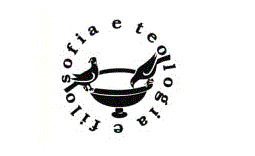


In questo saggio sostengo che il tema «Dio in comune» diventa significativo quando risulta dalla combinazione di una concezione religiosa e di una concezione filosofica di Dio. Sostengo questa tesi in tre passaggi. In primo luogo, sostengo che la comunanza di Dio non emerge dalla storia delle religioni che mostra solo forme di sincretismo religioso inefficaci per mettere Dio in comune. Pertanto, si può parlare di «Dio in comune» in ambito religioso solo in riferimento all'ampia condivisione di una specifica concezione religiosa di Dio. In quest'ottica, le religioni più condivise sono i monoteismi occidentali, cioè le religioni universalistiche. In secondo luogo, sostengo che tale pretesa di universalità emerge quando la concezione religiosa di Dio si combina con quella filosofica. Nei monoteismi occidentali, in particolare nel cristianesimo, ciò è stato reso possibile attraverso la formazione di un concetto teistico di Dio. Difendo infine quest'ultima da alcune obiezioni, in particolare da quella secondo cui il teismo sarebbe una «ontoteologia» e, come tale, sarebbe esposto al sospetto di idolatria.
Parole chiave: Teismo, Dio, monoteismo occidentale, credenze religiose comuni
In this essay I argue that the topic «God in common» becomes significant when it results from the combination of a religious and a philosophical conception of God. I support this thesis in three steps. Firstly, I argue that God’s commonality does not emerge from the history of religions that shows only forms of religious syncretism which are ineffective to put God in common. Therefore, we can speak of a «God in common» in the religious sphere only with reference to the wide sharing of a specific religious concept of God. In this view, the most shared religions are Western monotheisms, that is universalistic religions. Secondly, I argue that such claim to universality emerges when the religious conception of God is combined with the philosophical one. In Western monotheisms, especially Christianity, this has been made possible through the formation of a theistic concept of God. Finally, I defend the latter against some objections, in particular against the objection that theism would be an «ontotheology» and, as such, it would be exposed to the suspicion of idolatry.
Keywords: Theism, God, Western monotheisms, Common religious beliefs